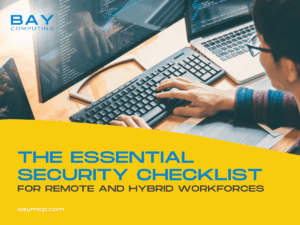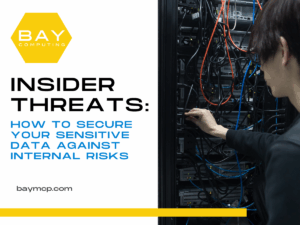Safeguarding Your Business from Phishing Scams This Holiday Season: A Strategic Imperative
When Holiday Cheer Meets Cyber Risk
The holidays bring familiar patterns: more shopping, more shipping, and more online activity. But they also bring a rise in cybercrime. For hackers, the holidays are open season. Businesses that don’t prepare often find themselves vulnerable when they can least afford it.
Data shows this risk is real. For example, Thanksgiving Day 2024 was the top day for fraud attempts in the U.S. Scammers use the flood of promotional emails and delivery updates to hide phishing attacks. These fake messages often look like real sales offers or order confirmations. Employees and customers, distracted by the rush, are more likely to click without thinking. To stay secure, companies must plan ahead and strengthen their defenses before the holiday season begins.
The Cost of Ignoring the Threat
Cybersecurity spending isn’t just a tech issue; it’s a financial decision. The average global cost of a data breach hit $4.88 million in 2024. This is a 10% jump from the previous year. Phishing is one of the main causes of these breaches. One careless click can lead to millions in losses.
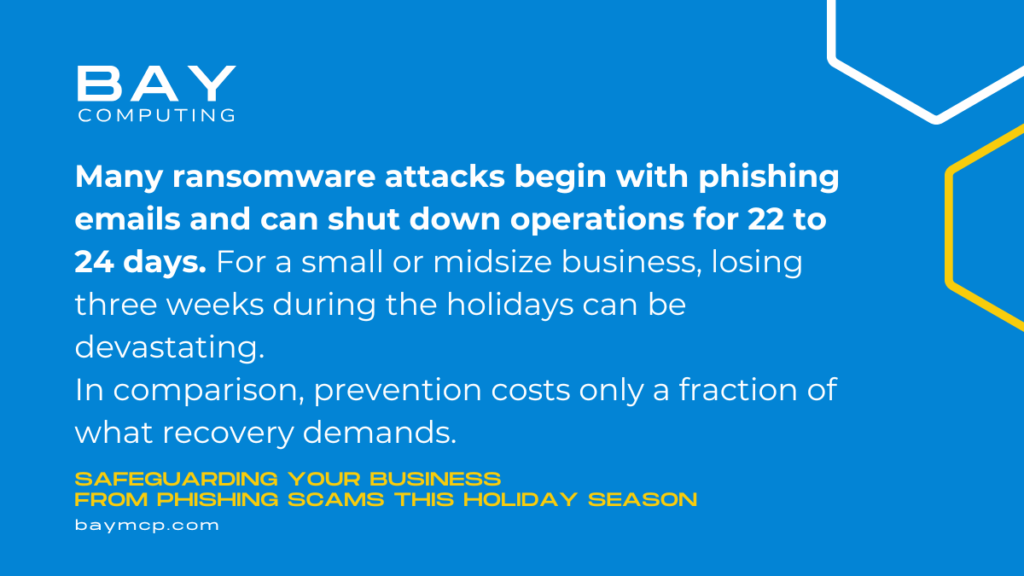
The damage doesn’t stop at recovery costs. Many ransomware attacks begin with phishing emails and can shut down operations for 22 to 24 days. For a small or midsize business, losing three weeks during the holidays can be devastating. In comparison, prevention costs only a fraction of what recovery demands.
| Metric | Value | Why It Matters |
| Average Cost of Data Breach (Global) | $4.88 million | Shows rising costs and urgency to improve defenses |
| Average Downtime from Ransomware | 22–24 days | Can cripple peak-season profits |
| Total U.S. Consumer Scam Loss (2023) | Over $10 billion | Proves how widespread and costly scams have become |
To protect your business, follow these four essential defense steps:
Step 1: Strengthen Your Human Firewall
Your employees are your first defense, and often your biggest risk. During the holidays, the line between personal and work emails gets blurry. Scammers take advantage of this by sending fake shipping updates, donation requests, or bonus announcements that look legitimate.
Over 20% of online shoppers say they were targeted by scams during the holidays. If an employee is already worried about personal fraud, they might be less cautious about work emails. This makes targeted training critical.
Basic, once-a-year training isn’t enough. Businesses should offer short, focused sessions that teach employees how to spot new scams happening right now. Seasonal hires also need quick onboarding on cybersecurity rules. Partnering with a cybersecurity company that provides holistic, proactive cybersecurity and IT security solutions, including real-time threat response and ongoing reports ensures everyone stays alert and prepared.
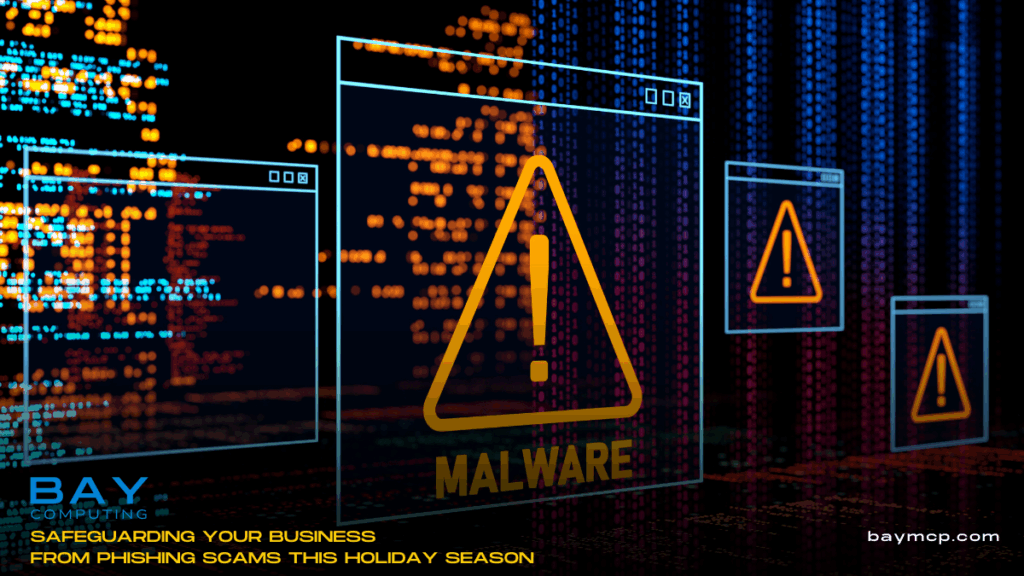
Step 2: Upgrade to Phishing-Resistant MFA
Passwords alone aren’t enough, and even some multi-factor authentication (MFA) methods are outdated. Text message or email codes can be stolen by automated phishing tools that mimic login screens in real time.
Modern MFA methods, such as Passkeys, YubiKeys, and biometrics, offer far stronger protection. These tools tie a user’s identity to a trusted device, preventing hackers from reusing stolen credentials. Companies should phase out SMS-based MFA and switch to these newer, safer options. For official guidance, review CISA’s Holiday Season Security Tips.
| Authentication Type | Strength Against Phishing | Common Weakness |
| SMS/Email Codes | Low | Easy for hackers to intercept |
| Push Notifications | Moderate | Depends on user verification |
| Hardware Keys (YubiKey) | Very High | Validates the real website |
| Passkeys/Biometrics | Very High | Uses device-based verification |
Step 3: Secure Your Vendors and Supply Chain
Even if your internal systems are protected, your vendors and suppliers might be weak links. Scammers often impersonate them in Vendor Email Compromise (VEC) attacks. These messages might ask for payment detail changes or send fake invoices. During the busy holiday season, staff may rush to approve payments without double-checking.
To prevent this, businesses must verify every financial request, especially those involving new or changed payment details. Always confirm through a separate, verified channel, such as a phone call, not through email. Also, know your vendors’ usual communication habits so you can quickly spot something off. For detailed advice, see Proofpoint’s VEC Mitigation Guide.
Step 4: Maintain 24/7 Monitoring
Many IT teams are short-staffed during the holidays, making it easier for hackers to slip through. With slower response times, a small incident can quickly turn into a major breach.
Continuous, round-the-clock monitoring from Managed IT Services ensures that suspicious activity is caught and contained right away. This constant watch helps prevent the long downtime that often follows successful phishing attacks. If a scam does occur, businesses should immediately report it to the FBI’s Internet Crime Complaint Center (IC3) to help recover assets and prevent further damage.
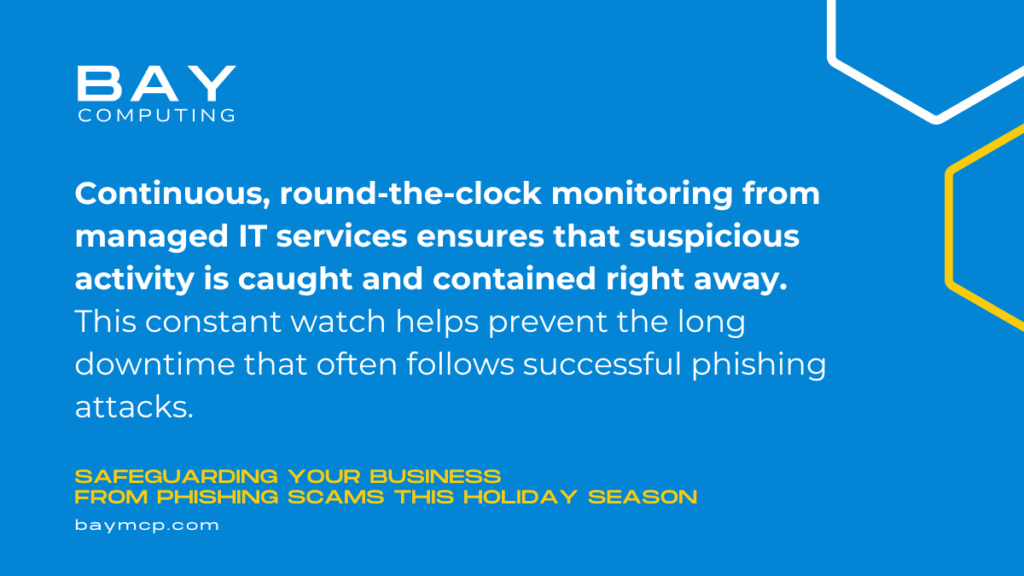
Stay Secure, Stay Operational
The holiday season mixes opportunity with risk. To safeguard your business from phishing focus on three main actions:
- Train employees to recognize seasonal phishing scams.
- Adopt modern, phishing-resistant authentication methods.
- Protect your supply chain through strong verification processes.
A proactive cybersecurity strategy costs far less than dealing with a breach. For businesses across the United States, especially those in highly connected areas like the Greater Boston, MA, Bay Computing provides cybersecurity solutions, and expertise. We also offer 24/7 monitoring, and tailored protection your organization needs to stay secure and resilient through the holidays and beyond.
Ready to protect your business before the next phishing wave hits? Contact Bay Computing today to schedule a cybersecurity risk assessment or deploy managed security services that keep your operations safe year-round.

